“So how was your trip?” ask well-meaning friends and coworkers when I return from a medical mission to Engeye Health Clinic, in rural Uganda. Even years after my first trip there, trying to find the perfect words to describe it is a challenge.
I have been involved with Engeye since its founding, more than a decade ago. As the administrative coordinator with Albany Medical College’s department of family and community medicine, I helped a second-year medical student, Stephanie Van Dyke, and a faculty member, Dr. Bob Paeglow, put together a medical-mission trip to the small Ugandan village of Ddegeya. The clinic was to be managed by a visionary accountant named John Kalule (born in Ddegeya) and staffed by visiting US physicians. My role was to recruit the medical teams and handle all of the trip’s logistics.
Since then, I have seen Engeye grow from a one-room clinic into a large campus of buildings, including a maternity center, a laboratory, a pharmacy and staff housing. Originally, Engeye was shuttered between medical-mission visits. Now the clinic and its programs (including the Engeye Scholars, an education initiative that I cofounded with a friend) are open year-round.
But when I first visited Engeye, nearly all of this was only a dream.
Before going, I’d found it easy and fun to work on this very cool global-health project, helping to develop Engeye’s programs from a distance. In the comfort and safety of my kitchen, I worked with people who knew more than I did and inspired me. I felt valued and appreciated, and through my laptop I made connections and found resources that helped to move the project along.
I spoke about Engeye to anyone who would listen. “Don’t sit next to her at a holiday dinner,” my family members joked, “or you’ll find yourself making a donation.” I felt complete confidence in what we were working toward, and in my ability to help it become a reality.
After months of preparation, I headed off to Uganda for two weeks, to connect with John and help out as needed. I got on a plane (along with many bags of supplies and medical equipment), flew to Uganda and drove down the dusty red unpaved roads to Ddegeya.
In the bright sunshine, Engeye Health Clinic stood before me like a beacon. At the time, it was just a small white building surrounded by palm trees. Outside I saw many patients dressed in rich colors, with dozens of children running around.
Back then, Engeye embraced the “backpack medicine” model. It lacked electricity and wifi, and we had no consistent donors, so we worked day and night to literally keep the lights on. I watched our founders John and Stephanie cram years of planning and implementation into a two-week mission visit. I watched our team of family-medicine volunteers do their best to see as many patients as possible in a short time. I watched the patients spend hours in the hot sun, waiting for their turn. For my part, I acted as a liaison between the medical teams and Engeye’s staff and helped to address any issues, needs or cultural differences that arose, while learning and processing it all for the first time myself.
I struggled with seeing disease and healthcare disparities up close. For the first time in my life, I saw people living in mud huts without access to electricity, clean water or the thousand other things needed to sustain a reasonable life. I met bright and engaging children who had no pathway to education. I adapted to taking showers from a cup, using pit latrines and dealing with insects.
It felt hard and dusty and overwhelming–very far from how we’d planned it. Despite the challenges, we all worked hard together. We bonded, hugged children, ate delicious fruit, laughed and took pictures. Then our team got back on a plane and flew home to the US. Back to school, back to work, back to the comfort of our homes and families.
When I got home, a new challenge hit me. My family members, friends and coworkers all asked the same question: “So how was your trip?”
It took me a while to realize that most of them didn’t really want to know the answer. Well, maybe they did–but only if I could compress it into a sixty-second sound bite. Good friends and, yes, even my loving and supportive husband might tolerate a two-minute sound bite, but then they glazed over. People seemed most interested in surface details: “How hot does it get, so close to the equator? How were the avocados? How was going on safari?” Very few asked anything about my trip beyond the “adventure” part.
Recently I made my eighth trip to Engeye. As I said, much has changed: Now there’s a strong clinic foundation, Ugandan staff and organization in place. Nowadays, too, we spend a lot more time preparing the visiting teams for what they’ll encounter. Each team consists of good friends, amazing doctors and other individuals who truly want to support this community.
As always, when I returned home, despite the hardships, the pit latrine and the emotional and physical challenges, I found myself missing Engeye. I miss the team connection, the laughter and frustrations of bunkhouse living, the community meals, the relationships and the appreciation for good work. I miss the Engeye staff, the ease of the daily hug, the sunrise, the children calling “Mzungu!” in greeting.
And I still have the sense that people who ask about my trip are secretly saying, “Please wrap it up quickly, so we can move on to something else.”
Every time, I feel the same disappointment. I call it the “medical mission blues.” My family, friends and acquaintances still seem more interested in the giraffes I saw than the people who were helped. With each new trip to Engeye, I feel their interest fading, while mine only grows.
Who’s to blame for this? Maybe it’s me. Maybe I’ve failed to share something crucial about my experiences–something that would get people more excited about Engeye. Or maybe I have to do better at expressing the feelings stirred up by my Engeye trips. I find it difficult to put those feelings into words, so how can I expect others to respond appropriately?
I feel guilt at the privilege and materialism of the lives we lead in the US, compared with the lives of many in Uganda. I also feel hugely discombobulated by the discrepancy between the person I am at Engeye compared with the person I am back home. Seeing me in action at Engeye, taking the lead and handling things I’d never have tackled at home, my doctor friends have exclaimed, “Wait! Who are you?” Maybe that’s something I’m still figuring out.
I know that my experience is not unique. The Minerva Fellows, a group of recent Union College graduates who spend nine months at Engeye, have reported similar reactions. Upon returning to the US and reentering their busy, technology-obsessed lives, they struggle with frustration and depression. After hearing the Fellows’ sound bites about the trip, their loved ones ask, “What’s next for you? Are you applying to medical school now? Where will you be working?” Hurry up. Move on. Get back to us.
So I’m not alone. Still, so many Engeye stories hang heavy in my heart–stories that I long to share.
I think of an albino boy, just a few years younger than my own children. I’d been only dimly aware of the atrocious cruelty that albinos face in Africa. (One Google search will tell you.) John Kalule had mentioned an albino teenager who’d been refused malaria treatment, then forcibly committed to a mental institution before he managed to make it to Engeye. To me, that sounded surreal, like something out of a TV thriller. But meeting him, talking with him and seeing him dance at the Scholars’ party made him very real to me. Now I saw him simply as a young man trying to get through each day while being cared for by his tired grandmother, who’d taken him in at birth. Although Engeye gave him compassionate care, he still faces many prejudices and dangers, with no guarantee of a happy ending.
I think of the Engeye Scholars, whose school tuition is paid by American donors. (Four Scholars have been accepted into university in Uganda; another is attending trade school.) I remember a sunny afternoon spent sitting at the picnic tables with the older Scholars, listening to music and laughing as they sang the song “Happier” by the singer Marshmello.
One turned to me. I leaned closer, ready for a lighthearted joke. Instead, he shakily whispered, “I’m so very hungry.”
His words hit me square in the face. He’d just returned from school break–two long months in which, for some families, having an extra mouth to feed means missing a meal or two, or more. All of our jokes and laughter, and even the Scholar’s new shirt from the US, couldn’t protect him from this harsh reality. The pieces of chapati bread I gave him were just a temporary solution to a permanent problem.
How do I turn these stories into sound bites, when I’m not sure how to put them into words for myself? Would anyone back home even care?
The good news is that I’ve gradually learned ways to combat my feelings of aloneness by reinforcing my connection to others who cherish Engeye.
One thing that helps is the practice, at Engeye, of using a talking stick at our nightly group-process sessions. (Sometimes it’s a stick, sometimes it’s an empty beer bottle. It doesn’t matter.) Whoever has the stick has the floor.
The first night or two of each visit, I pose some questions to get the ball rolling, but after that, there’s no need. Visiting teams see hard things; we struggle with complicated cases and death. In the clinic’s cramped quarters, personalities can collide. There’s so much to talk about. Using the talking stick creates a powerful common thread that connects us at Engeye, and in the weeks, months and even years to come.
Back home, we switch to a high-tech talking stick: our WhatsApp team chats. I have ongoing chats with the 2017, 2018 and 2019 teams. Even a simple “Good morning, I miss you guys” brings us all back together. Amid a cold Northeast winter, Engeye is a warm memory of friends and faces and stories that we all hold dear–a reminder that we truly can make a difference in the world, and that we, too, have been changed for the better.
So now when a friend asks, “How was your trip?” and I deliver my sound bite and fail (again) to convey Engeye’s essence, I hope that my sense of connection with my teammates will help ease the frustration.
Maybe not. But now I know that I can head to WhatsApp and share a story, a photo or a comment, and my Engeye family will just get it.
And whenever I see an Engeye teammate at work or elsewhere and hear the familiar greeting “Oli Otya, friend,” it’s as if no time has passed. We share a sincere Engeye hug.
Without words, they see me. I see them. They understand.


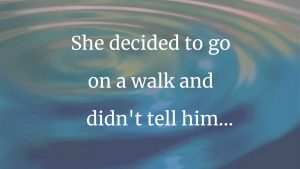

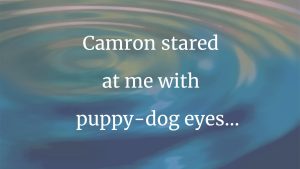
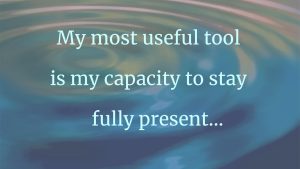
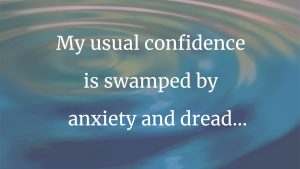
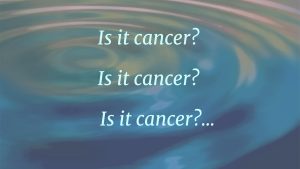
10 thoughts on “Finding the Words”
Thank you for sharing this. I have had this experience so many times. you captured it.
I’m so glad that you were able to find a way to be seen and heard – I think it’s a universal human need. While my experience is not the same, it has common features. My friends and family do not ask me how my day was. They honestly do not want to know. But the fact is, my day was good, for me. They do not want to hear the details of the wife who feared that her husband was dead because the surgery was taking so long. The husband who was not giving up hope, even though his wife already looked like a corpse following a lung transplant, with a multitude of ultimately fatal complications, Or the 60 yr. old who died after only a few days of illness and the bewildered family agreeing to donate all of his organs. And then there’s the family of the young person, under that age of 30, who died after days of uncontrolled asthma. Her mom, denied a VISA to the U.S. to see her child on life support so that she too could be an organ donor. How could I describe to anyone that we used FACETIME so that this mother in Central America could see her child and plead for her to ‘wake up’
There are no words. I too feel alone in the day to day of the work that I do. When a colleague who is able to share this with me and I with them, the sense of understanding, being seen and seeing is simply profound. From there on in, without words, we see one another.
Thank you so much for sharing your words. There is not a “soundbite” for those types of experiences. Thank you for your work. ❤️
This is such a clear snapshot of the struggle and the reward of doing what we do and hoping it connects in the same way – in any way – with the people we bring alongside us into it. Thank you so much for sharing, Theresa, and for doing it in such a beautiful and compelling way. ❤️ from your Engeye family member.
I loved reading this wonderfully-told story. I wanted more so I visited the website, http://www.engeye.org. It’s fantastic! Time stopped; I got lost there. The smiles, the teamwork, the hope and joy. To be part of something so meaningful…well, it just doesn’t get better than that. Thank you, Theresa.
It may be difficult to paint a picture while talking to friends and family but your written words are powerful. You painted a picture that will remain in my mind and heart.
Yes, I had the same thought; when audiences are impatient &/or in a social situation where small talk is what’s expected, WRITE, answering questions even if no one has asked them. After all, that’s what poets (I am one) do all the time.
BRAVO and thanks for sharing a piece of your life. I admire your passion and could sense your compassion in this poece. Its hard for others to relate who don’t share a common experience even though they care about you. Its so easy for me to relate and chat about my medical workday with fellow teammates who “understand” than with my greatest teammate husband who is not in the medical field. So take comfort in those who who share your vision but never underestimate the impact you are making on others who hear your little soundbites. You are a champion for some of the “least of these” and a hero in many hearts!
I don’t think people want to hear hard things. We also are trained more and more by the fast pace of the internet world to want tiny bits of information before we move on. I really applaud your work. Two doctor cousins were involved in medical missions over the years, places where short wave radio was the only outside contact and poverty the rule of the land. I applaud them, too.
This is really terrific – honest, compelling, convincing, and boy do I get that 60-second attention span when it comes to
answering questions that don’t really signal curiosity. I’m sure I’m not alone ion feeling I’ve been on both sides of that uncomfortable Q & A myself – the impatient questioner, the stymied answerer. Bravo to Theresa Weinman.